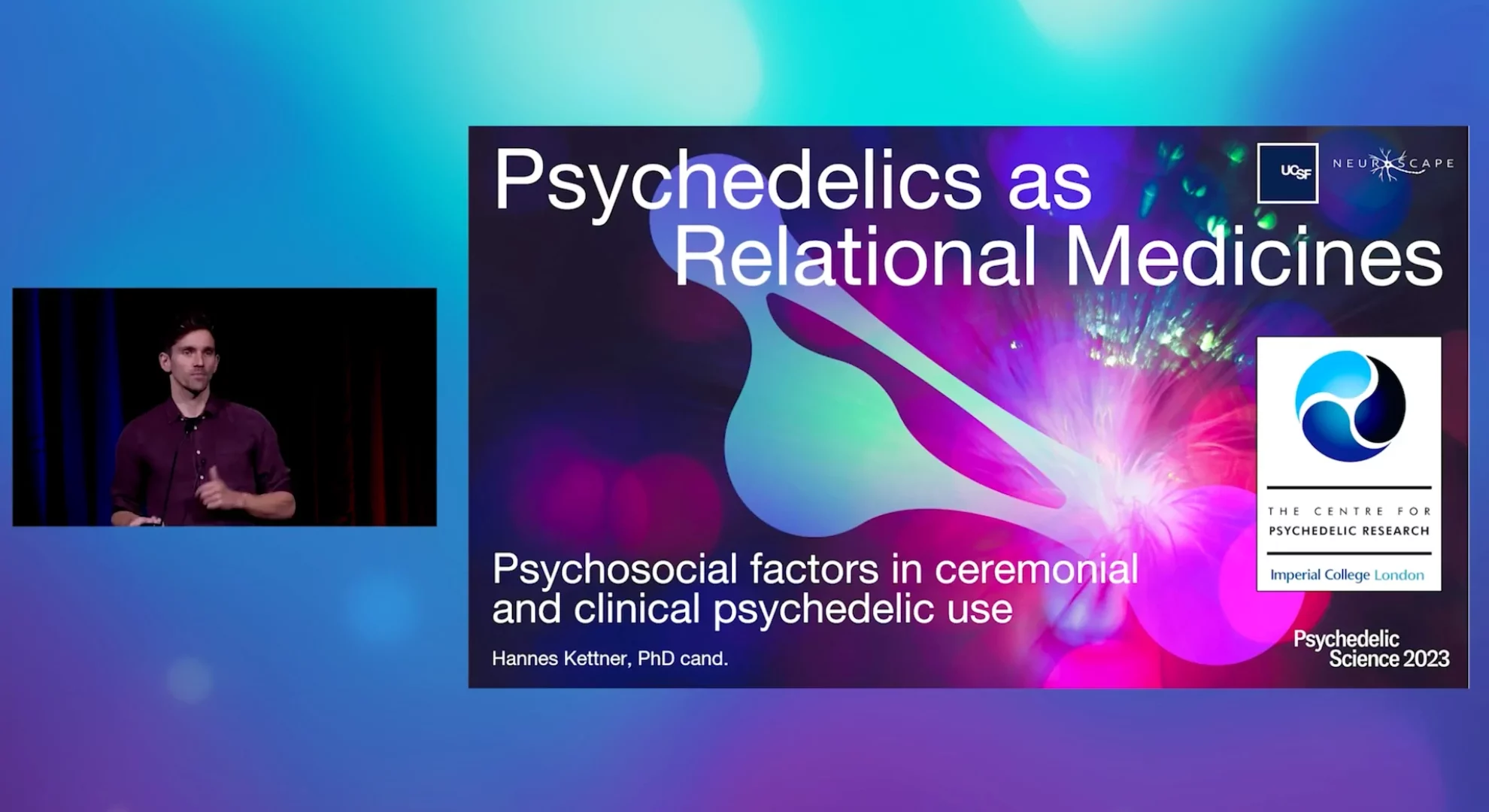
Psychedelics as relational medicines: Investigating the role of psychosocial factors for outcomes of clinical and naturalistic psychedelic use
Psychedelics have recently re-emerged into psychiatric research as treatments for addictive and mood disorders. Historically and contemporarily, psychedelic studies have emphasized the importance of contextual elements ('set and setting') in modulating drug effects. Nevertheless, current small-scale clinical and laboratory studies have tended to bypass a ubiquitous contextual feature of psychedelic use: its social dimension. Aims – The present research aimed to elucidate the role of psychosocial factors in naturalistic and clinical psychedelic use. Specifically, impact on long-term psychological outcomes was investigated for 1) acute intersubjective drug effects in guided group sessions in psychedelic retreats; 2) therapeutic alliance in a trial of psilocybin for major depression. Methods – Psychological self-report data from a large-scale prospective observational study on psychedelic retreats, and a randomised controlled trial of psilocybin for major depression have been analysed using parametric statistics and structural equation (path) modelling in order to investigate the mechanistic role of psychosocial variables for mental health outcomes. Results – The experience of communitas in naturalistic psychedelic group sessions – a sense of shared humanity and togetherness – could be linked to emotional self-disclosure, and subsequently improved psychological well-being and social connectedness 4 weeks after a psychedelic retreat. Furthermore, patients in a depression trial reported lower depression scores at the 6 week endpoint, mediated by more intense emotional breakthrough and mystical-type experiences, if they reported high alliance and rapport pre-session.
Share: Psychedelics as relational medicines: Investigating the role of psychosocial factors for outcomes of clinical and naturalistic psychedelic use
Facebook
Twitter
LinkedIn
Email




